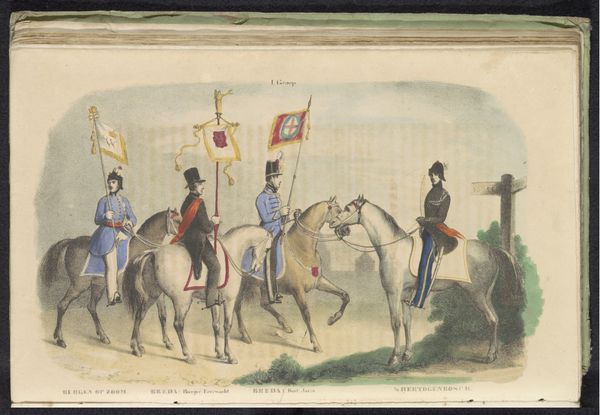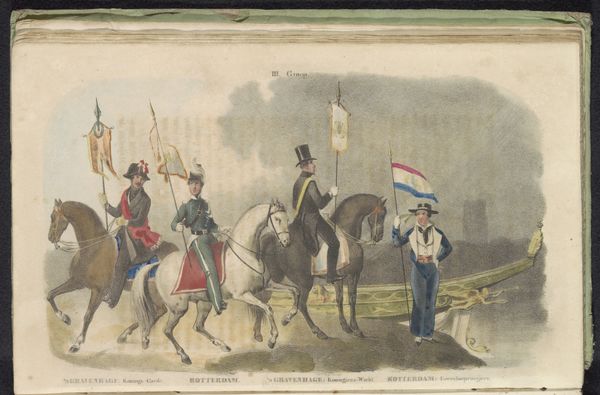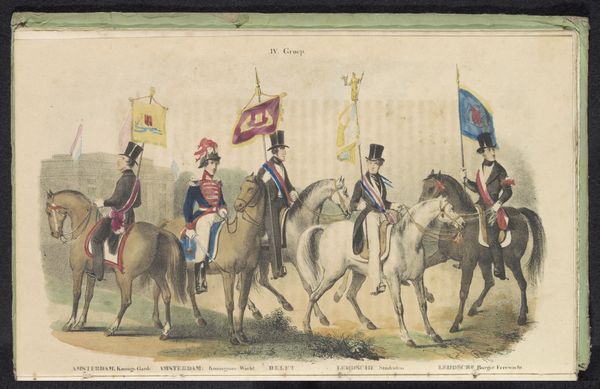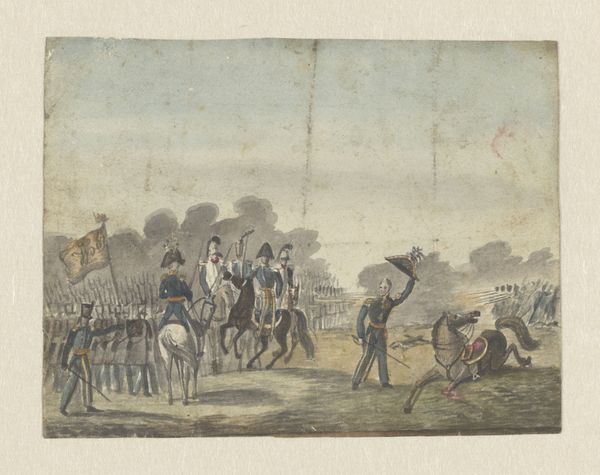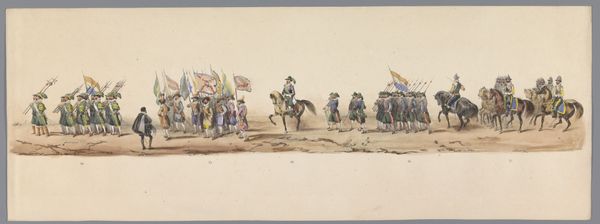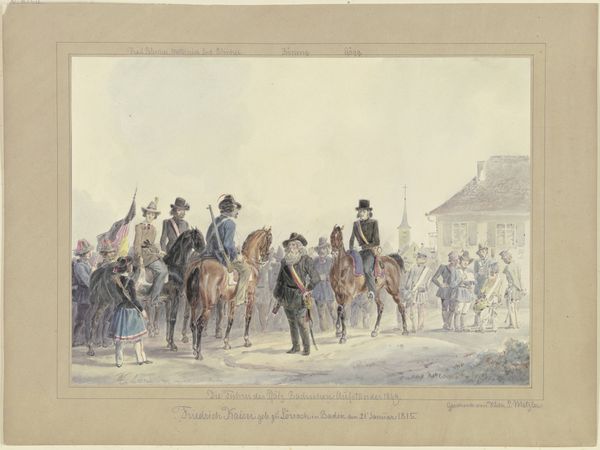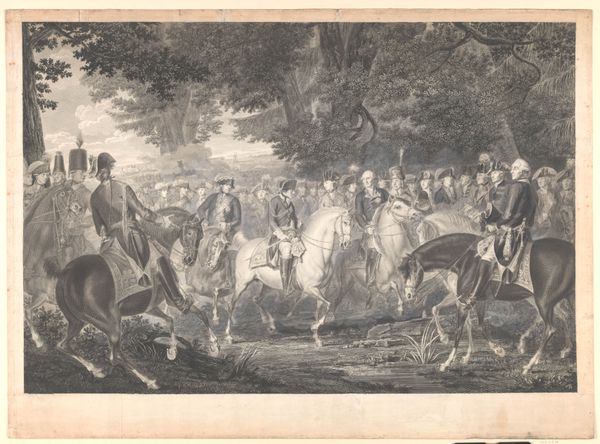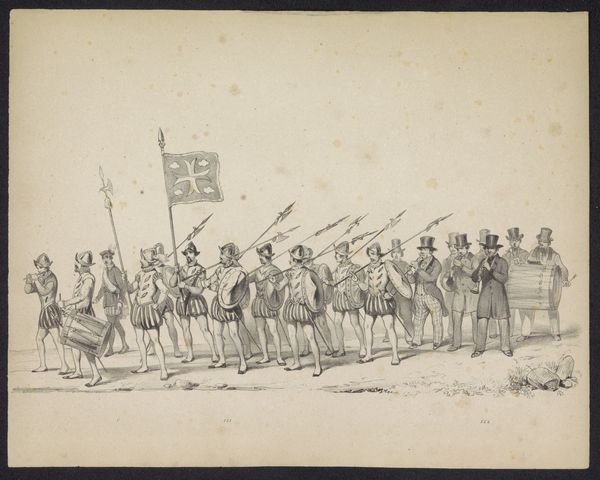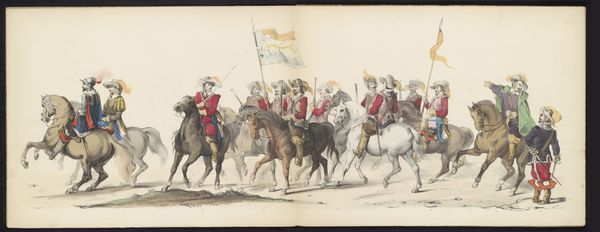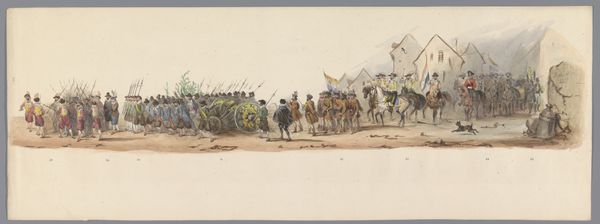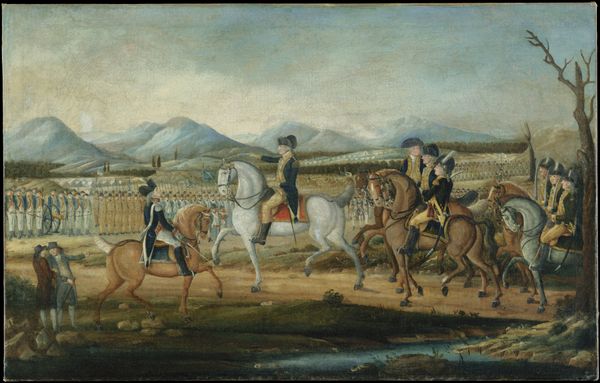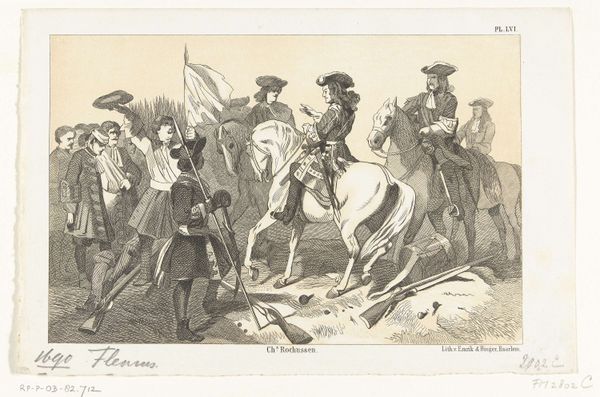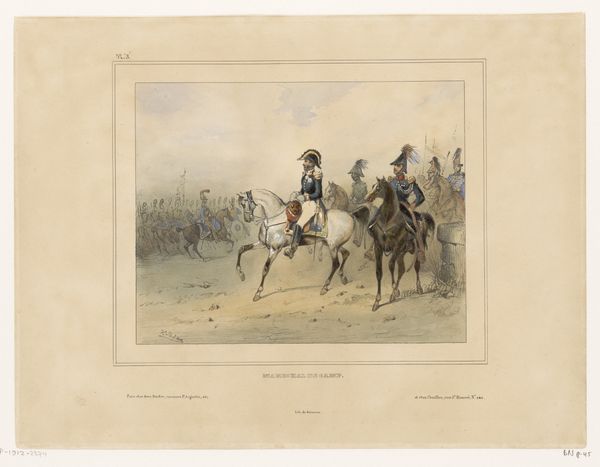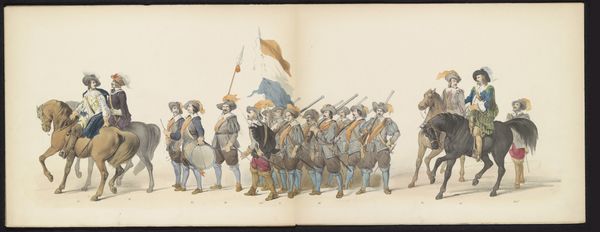
Kostumen en vaandels van de erewachten van Nijmegen, Tilburg, Grave, Eindhoven en Arnhem, 1840-1842 1840 - 1842
0:00
0:00
drawing, print, watercolor
#
portrait
#
drawing
# print
#
watercolor
#
coloured pencil
#
romanticism
#
genre-painting
#
history-painting
Dimensions: height 144 mm, width 235 mm
Copyright: Rijks Museum: Open Domain
This print, created around 1840, shows honor guards from several Dutch cities. Each figure carries a banner displaying unique heraldic symbols, emblems deeply rooted in the medieval tradition of civic identity and pride. The banners, those small rectangular flags, are particularly revealing. We see variations of heraldic devices, each bearing the weight of a city's history. Consider the eagle, a symbol of imperial power since Roman times, or the lion, representing courage and nobility, both recurring motifs in European heraldry, and here they speak of each city's unique aspirations and historical trajectory. Think of how these symbols persist, evolving yet retaining core associations of power, protection, and loyalty. These banners do more than represent administrative entities. They act as visual mnemonics, triggering collective memories and evoking a sense of shared identity. How these emblems engage our subconscious, stirring a sense of belonging, is part of the enduring power of such imagery. As the banners evolve and change over time, they become living symbols, constantly adapting to changing societal needs.
Comments
No comments
Be the first to comment and join the conversation on the ultimate creative platform.
